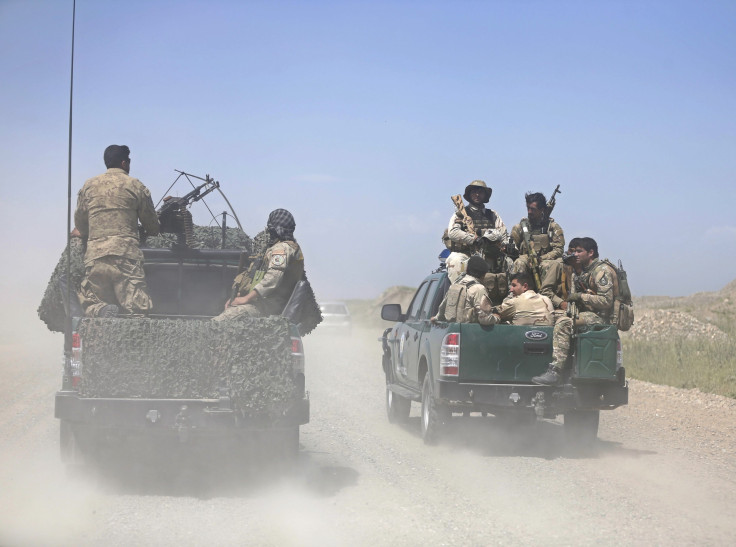Afghanistan Forms Militias To Fight Taliban After Secret Meeting Between Afghan Peace Envoy And Former Taliban Officials

Amid a growing threat from Taliban militants in the north, Afghanistan’s government is forming local armed forces and calling on tribal warlords for military assistance, the New York Times reported. Last week, an Afghan peace envoy had reportedly secretly met with former Taliban officials in China.
As part of the latest government effort to rein in the Taliban, who have vowed to disrupt the democratically elected Ashraf Ghani administration, several thousand Afghans from the country’s north are expected to be mobilized to fight the Taliban in areas where the military and police forces have failed to halt the group’s advance. The strategy to turn to irregular forces is deemed risky by many who fear that the move could trigger civil strife in a country still haunted by memories of the atrocities of a civil war in the 1990s.
“We have experienced this failed experiment of militia-making before,” Fawzia Koofi, a member of parliament from Badakhshan, one of the provinces where Kabul is planning to form the militias, told the Times. “This will spread the war from house to house, starting rivalries as everyone begins arming their own groups.”
Although the Afghan military and police forces -- estimated to number more than 320,000 as of late last year -- continue to fight the Taliban across the country, they are reportedly dealing with casualties at an alarming rate. During the four-month period ending in April, over 1,800 soldiers and police officers were killed and 3,400 were wounded in action, the Times reported, citing a Western military official.
The Taliban, which is estimated to only have about 30,000 fighters, has reportedly deployed more militants in northern Afghanistan in 2015 than in the past. By April, the rising insurgency in the north had helped Taliban forces defeat the Afghan army in several northern provinces, the Times reported.
The new plan “will be controlled and not an irresponsible distribution of arms,” a government official told the Times. However, the official said that the planning was not yet complete, and acknowledged that the move “might increase rivalries” between local armed groups.
The government's moves follow a secret meeting last week when a prominent Afghan peace envoy and former Taliban officials held talks in the northwestern Chinese city of Urumqi on May 19 and May 20 to discuss a potential peace process. The two-day meeting, which was facilitated by Pakistan’s intelligence agency, the Inter-Services Intelligence Directorate, was also attended by Chinese officials and ISI representatives, the Wall Street Journal reported.
The ISI’s involvement in the meeting is considered to be critical for the success of a peace process, as much of the Taliban leadership is believed to be based in Pakistan since 2001. The country has also been accused of controlling the Taliban insurgency, though Islamabad has repeatedly denied the claim. The location of the secret meeting was also deemed significant as China had previously offered to mediate in efforts to engage the Afghan Taliban in a peace process, according to the Times.
“We will support the Afghan government in realizing reconciliation with various political factions including the Taliban,” Reuters quoted Chinese Foreign Minister Wang Yi as saying in February. “China is ready to play its constructive role and will provide necessary facilitation at any time if it is required by various parties in Afghanistan.”
© Copyright IBTimes 2025. All rights reserved.






















